Race Report: The Barkley Fall Classic 2022
The only way out is through.
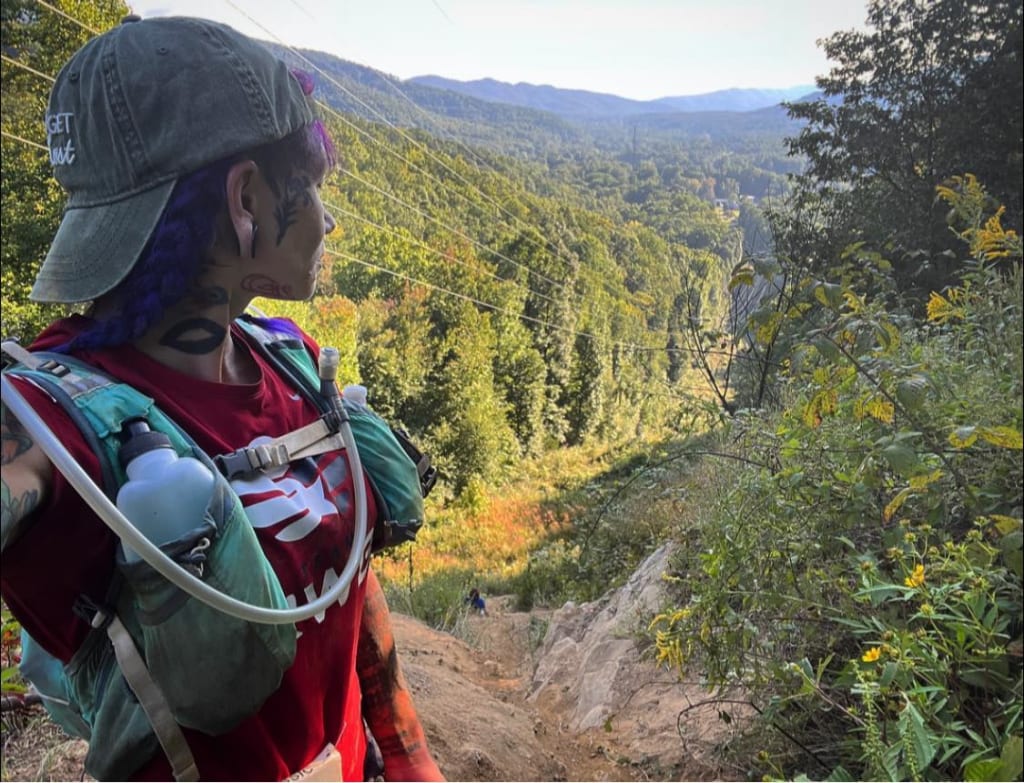
Halfway up Chimney Top, I realize the Barkley is winning.
It’s my second Barkley Fall Classic and my fourth ultra marathon. Like many, I’ve spent the last year hellbent on redemption from my ride on 2021’s Bus of Disgrace.
That word, redemption, hangs heavy in the air here. The Croix is not metal and ribbon. The Croix is a testament to courage, a measure of merit. Only those who hold one can truly attest to its cost.
For some, a failure here is all the experience they need of the thing. They have faced the impossible; they have seen the monster. They are content to let it sleep. There are other 50ks, other adventures, that come with far less trouble.
But for others, much like its fabled older sibling, the baby Barkley gets into your blood. Across the world, Frozen Head’s ornery children spend their year waiting eagerly to be called home.
I am, of course, the latter.
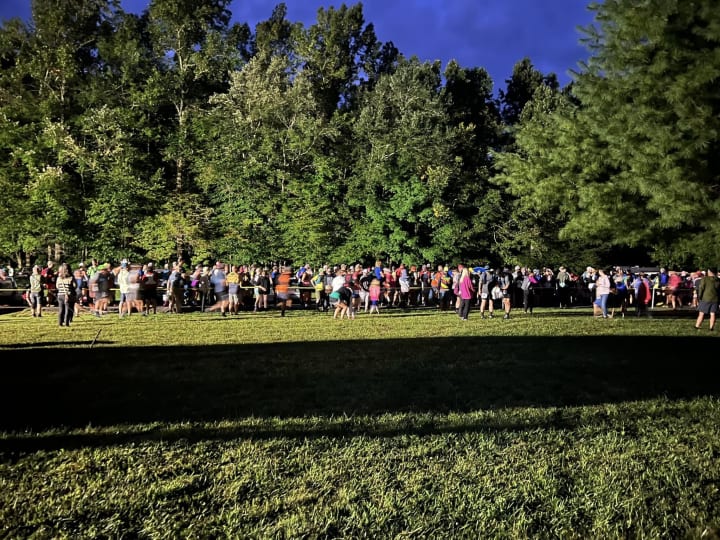
My sophomore trip is less hurried but no less surreal. Since our arrival in Wartburg I’ve stood in the starting field, hugged Lazarus Lake, and touched the sacred yellow gate with a kind of wonder. Last year’s kind strangers are this year’s familiar faces. When I take my map, the markers are no longer mysterious, but places I remember: Bird, Tub, Rat, Brushy.
Of course, that makes nothing easier. If it were easy, it would hardly be a Barkley anything.
If you know, you know.
Weaknesses have no hiding place here - the course is designed to find and exploit them. Downhill, I move quickly and fearlessly; on the ascent, I am passed easily by my peers. There are no trekking poles permitted, but I scrounge a stick from the brush and lean into it, hoping steady progress will make up for speed.
Some runners laugh as I pass. Others follow suit.
Between Chimney Top’s trailhead and the next aid station is a seven mile climb, if the map is to be believed - which, as any BFC runner will tell you, it isn’t. Out here, a mile might mean two. It might mean more. The only certainty is that finding out will require a struggle.
Barkley gives nothing freely.
How is it? says a runner. He gestures vaguely upwards.
When you think you’re done, I say, you’re wrong. It keeps going. And it keeps going after that.
After considering, I opt for less water over more weight.
It’s a mistake that will cost me dearly.
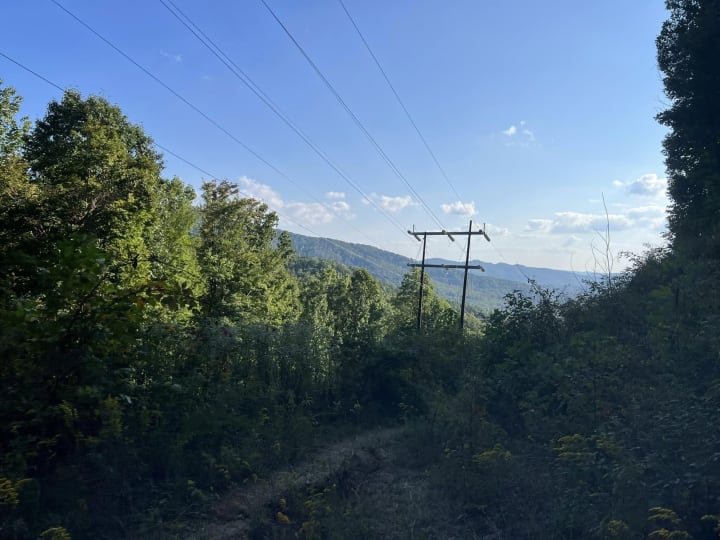
Hours later, I’m breaking my own rule, looking desperately upwards at a trail without end. My hydration pack is empty. My handheld is empty. The calories in my pack are as palatable as sawdust. I’m dizzy, my field of vision narrowing. I pinball from tree to tree, panting.
For the first time, I consider being defeated.
I could stumble back down the trail and succumb to failure sooner than later. It’s possible. I could choose to end this anytime.
I was wrong, I think. I’m not strong enough.
But I can’t make myself turn back.
While I wrestle with my churning stomach, another runner asks my name. He says he read my report last year.
I say thank you, politely, and mean it. I smile. When he’s passed me entirely, I vomit.
After, I peel the plastic watch from my wrist and fasten it to my pack. It was a mistake to bring it, cutoffs be damned. Time means nothing here. Not really. When my race is over, I’ll know.
I’m careless with my next effort to give a faster runner clearance: when I step back, the unexpected extra inch of incline makes my left calf seize viciously with cramps. When I bring my foot down the leg buckles entirely. I fall before I realize it’s happening, an undignified heap stretched over the dirt.
The second time it buckles, I swallow a scream.
Minutes slip away as I knead the muscle. Eventually, it releases. I take a step.
I take another.
The rest of Chimney is a haze. I crouch. I stand. I stagger.
Stumbling, I refuse water from another runner.
When she insists, I’m grateful.
I reach Tub Springs with twenty four minutes left to cutoff. Someone ahead of me has already quit, the decision peaceful on his face. He offers me his stick, smiling. A bit lighter than yours, he says.
The volunteers nod towards Far Tar.
It’s funny, watching the runners go, one says. They leave up the hill, then they see Rat and come right back down.
My hands shake as I fumble my water back into my pack. The first drink floods me with relief. It’s not better yet, but it will be.
I’ve come this far.
I’m slow up the hill, still unsteady. Shrugging off my gear at the fire tower is a welcome relief: I climb the stairs feeling both refreshingly light and undeniably exhausted. I thank the Coalfield boys for my bib punch. I’m smiling when I reach Rat Jaw.
It’s time? I say. The photographer laughs.
It is, she says.
I nod. The only way out is through.
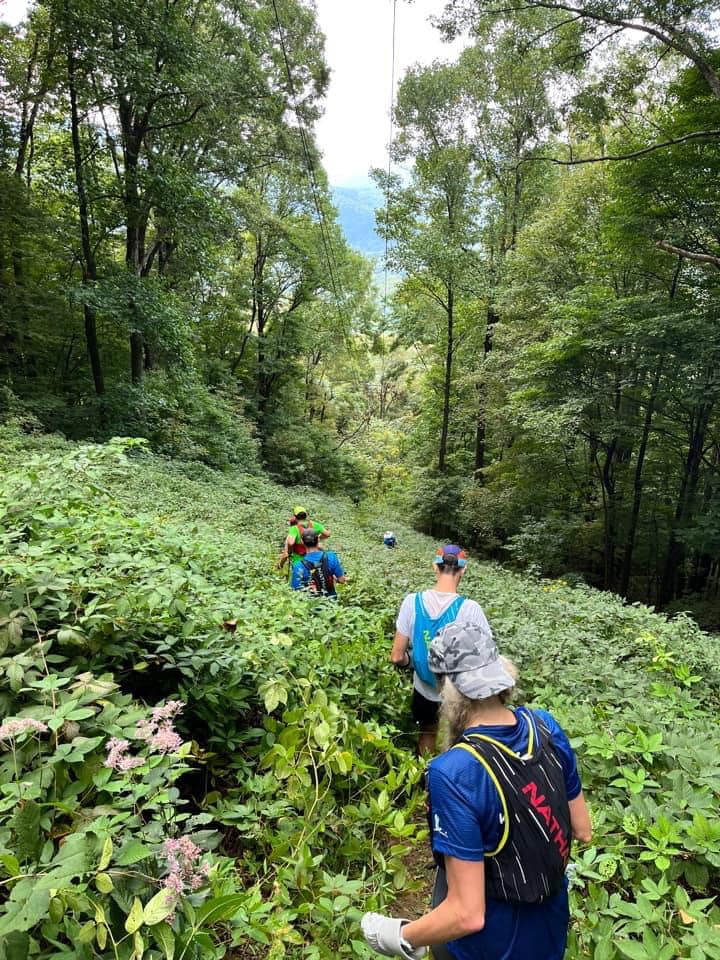
Here, I have company, a chain of runners ducking head-high thorns. The path is narrow, open only where other runners have already forced a clearing. Around us, a mile’s worth of saw briars reach eagerly, leaving thin trails of blood where they take greedy hold.
Rat bites, if you will.
This year, it’s a two-way street, and the lead runners overtake us halfway down: they are bleeding, fevered, urgent. We must wait for them to pass, or carve our own way through the thorns.
There are falls. There are cries when the briars catch flesh. Along the way, our group thins to a pair, marveling at the steep final descent, cheering at the sight of the prison.
Two minutes, a man calls, not unkindly. Or you’re done right now. To get the punch you’ll have to make it over the wall.
Two minutes. It isn’t enough. The tunnel itself is simply too long, before taking into account the field or pair of ladders that follow.
My companion asks what we do.
I answer: jump.
There’s no time for the headlamps buried in our packs. The end of the tunnel is a distant sliver of light, smaller than my thumbnail. I stumble through the water. My feet slip. I curse.
There are oncoming runners and still no light.
My friend shouts: use the wall —
The clock is running.
Impossibly, so am I.
We’ll never make it. I take long strides anyway, find a sprint I thought was impossible just moments ago. My body carries me in a way my mind insisted it could not.
And then I spill into the daylight and find my footing on the first ladder over the prison wall. I swing to the other and descend.
Incredibly, the volunteer gives me my punch and waves me along. Good luck, he says. Good job. The aid station can decide what to do with you.
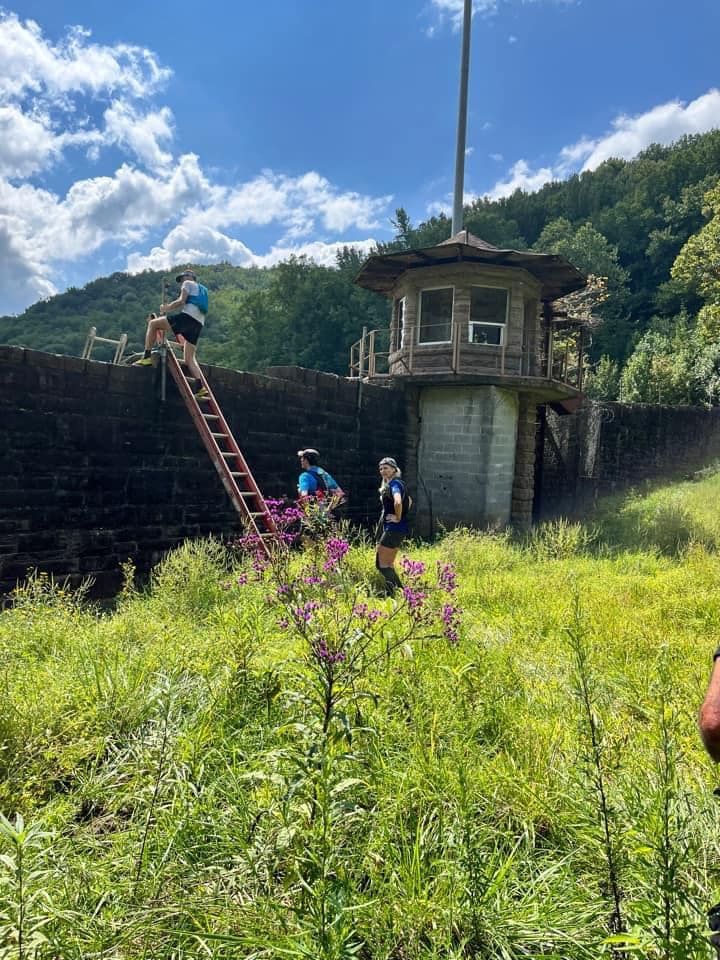
Around the corner and through the lot, retired runners crowd the grass of the prison, savoring the shade and the rest in equal numbers. Gone is their urgency, their momentum traded for relief. The bus will come soon. I’m not ready. I weave between bodies to the table, desperate to be heard.
Am I done? I ask. Am I done or do I go?
Oh, honey, says the volunteer. You’re going. Go.
And I do. Slowly: much too slowly, my legs burnt from the rush from the prison. By the time I reach Meth, my luck has run out. The runners here now are all on their descent: I have the distinct pleasure of being among the last fools pressing forward against the inevitable.
I can turn back, or I can climb. On paper, it will read the same.
More than one of the passing runners ask if I’m okay. If I need anything.
It’s a brutal climb, someone says.
I remember.
When I come close enough for the runner ahead to lower his walking stick to me, I let him, scrambling for a hold in the loose dirt. He pulls me forward. I claw to keep my grip between rocks and roots.
The rangers said to tell you there’s no use going on, someone says. You’re another forty minutes from the top and there’s no ride home up there. You’ll just have to turn around.
Another runner says: There’s soda, though. At the next aid point. Cups of it, ice and all.
I squint upwards. I’m crawling, my thighs and palms caked solid with dirt. Meth’s peak is still beyond view.
I call ahead: Do you think he means it? About the soda.
My trail friend doesn’t look back, but he laughs. I’ll buy you a soda. Come on. I didn’t come here to ride the damn bus.
When finally I pull myself over the peak, there are two more runners and a set of rangers. The rangers smile at me. I smile back.
"I know," I say. I know. But there’s one more coming, just the same.
My companion is still struggling with the last few yards when I lean over, pressed flat into the dirt. One wrong motion will send him sliding back down, a blind descent into terrain thick with jutting rocks and shards of glass. I don’t think I can, he says.
But I shake my head. It’s right here. You’re right here. We did it. Come on come on come on.
There’s nothing else to give, even if I could reach him. At the end of it all, a runner’s fate - and finish - lies only in their own hands.
Then one hand clears the edge, and, all at once, he’s made it. My adrenaline finally settles.
We all stand, quietly, and look off the edge of the world. It’s the golden hour. Frozen Head is framed in warm, late summer light. Butterflies the size of my palm cut lazy circles over the wildflowers. When we leave, there will be no trace of us, no sign of our struggle, no memory left to give the wilderness pause.
Short the Croix, this is why I’ve come.
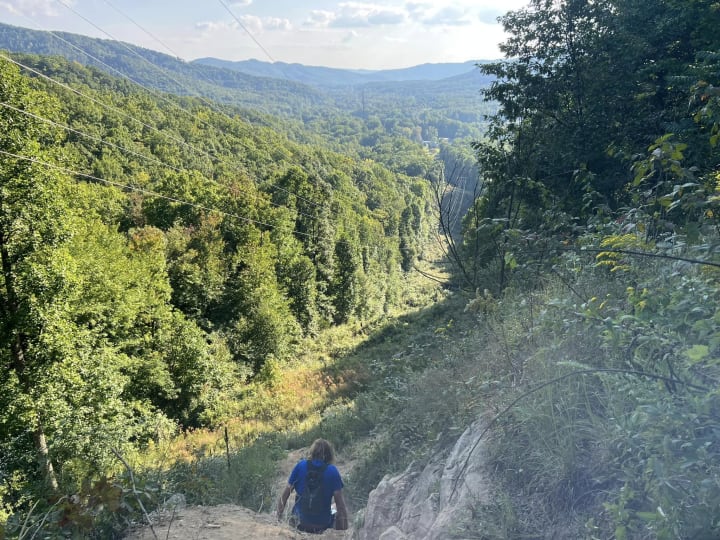
One by one, the rangers radio back our bib numbers. We are marked as quitters. Word of our DNF will soon reach family and friends.
As I lower myself back into the rocks, I hear the runner behind me, one final time:
I know it’s all the same to you, he says. But it’s not to us. We didn’t quit.
They laugh; I don’t blame them. Who knows how many times they’ve heard that stubborn mantra this afternoon.
But he’s right. Each of us today has climbed a peak we thought impossible, regardless where it falls on the map. Freed from the crushing monotony of comfort, we’ve embraced a part of ourselves still fierce and feral.
I carry those words with me down the mountain, wiping the blood from my arms, savoring the view. Over the next few days, I repeat it.
We didn’t quit.
And that, in itself, is a victory.
About the Creator
Laura Presley
Laura Presley is a firm believer that magic is real and birds are not. She lives and works in Ohio with her husband, their brood of wildlings, and their excessive number of rescue animals.
IG: @makeshift.martha


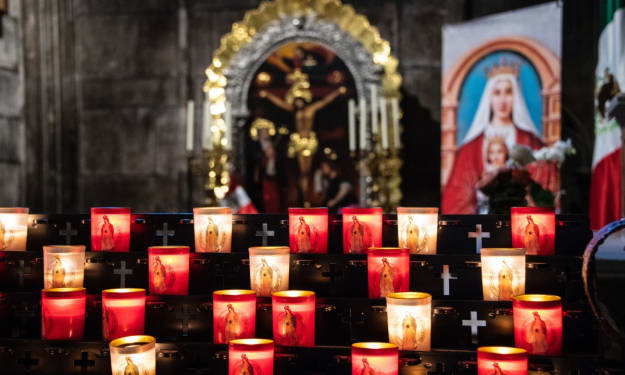



Comments
There are no comments for this story
Be the first to respond and start the conversation.